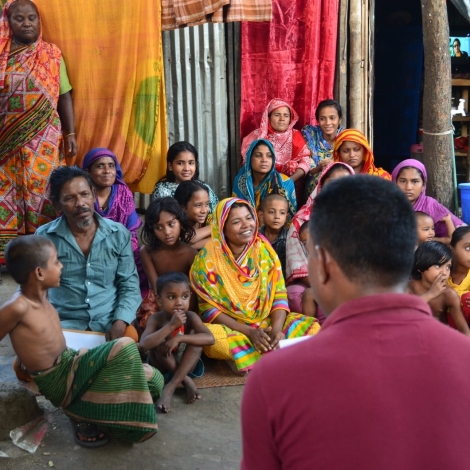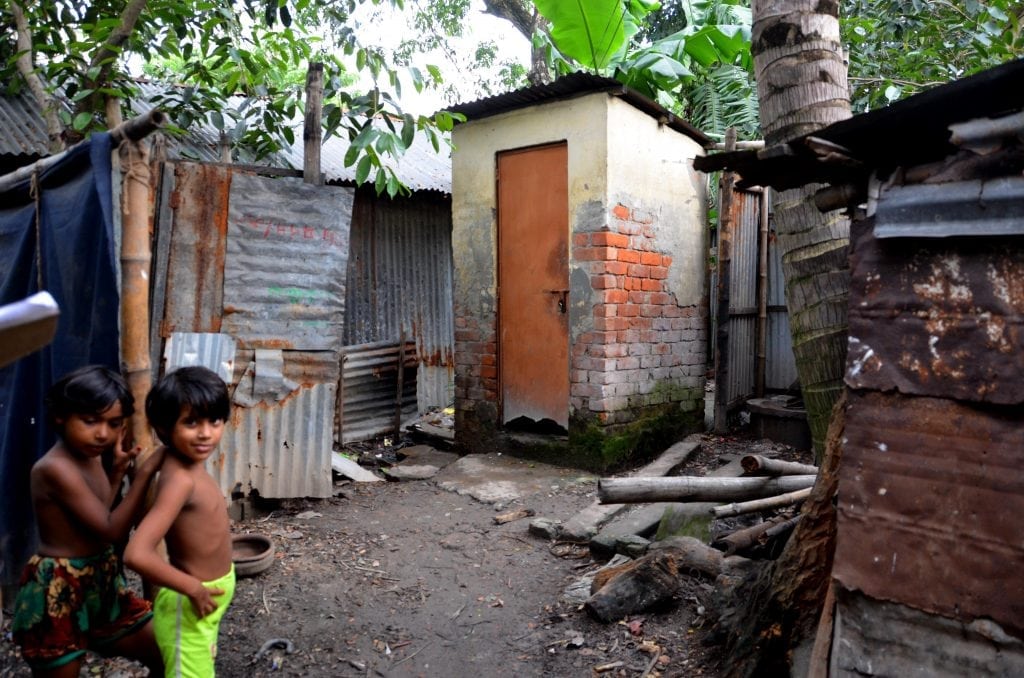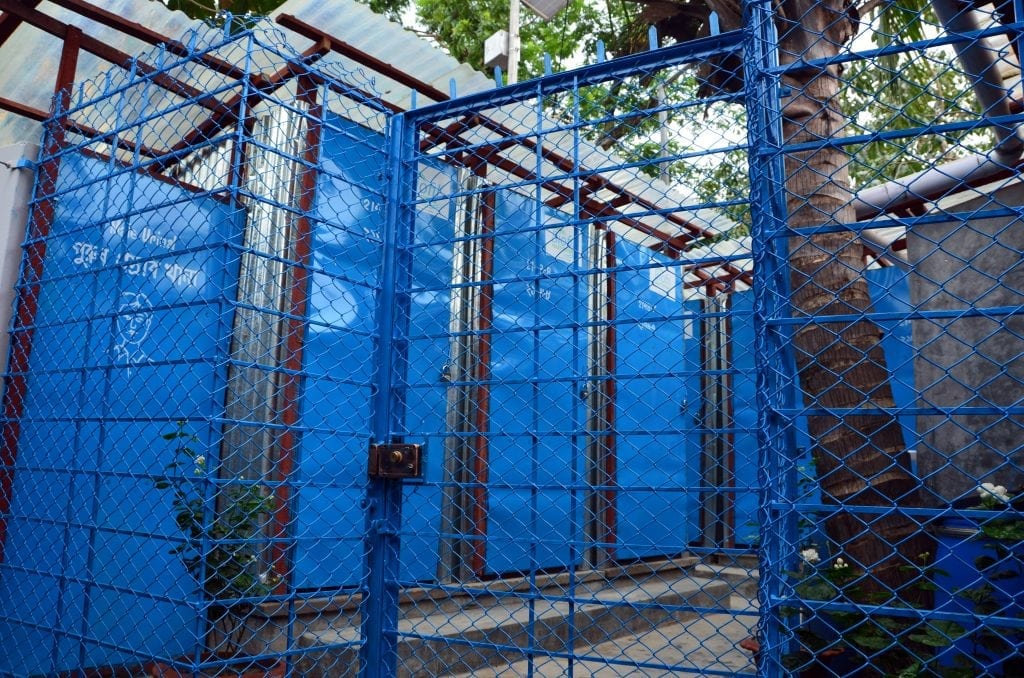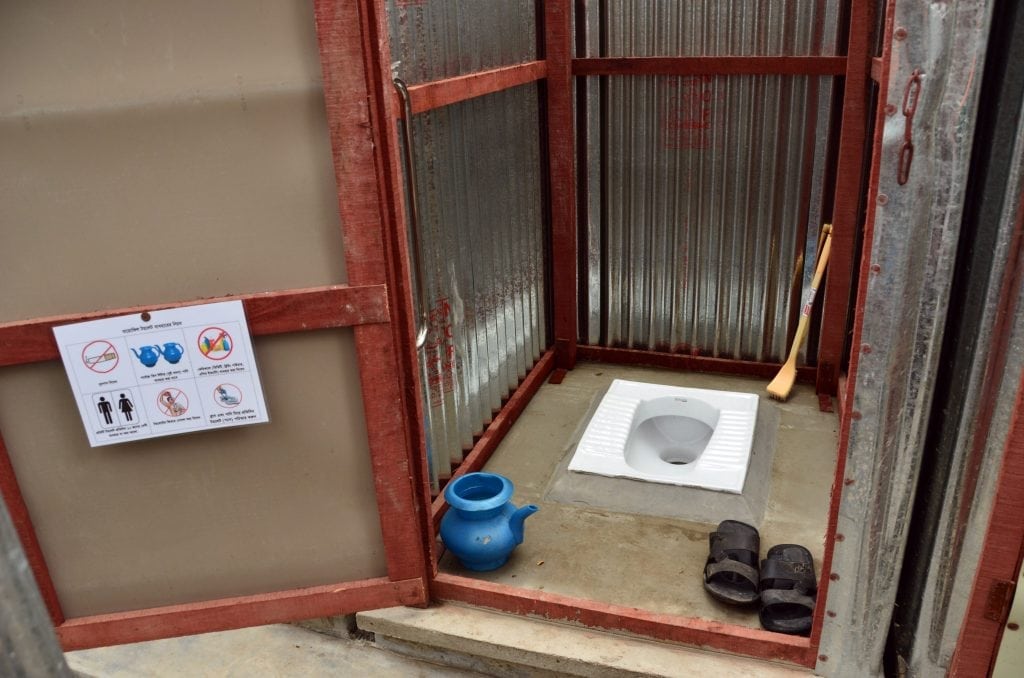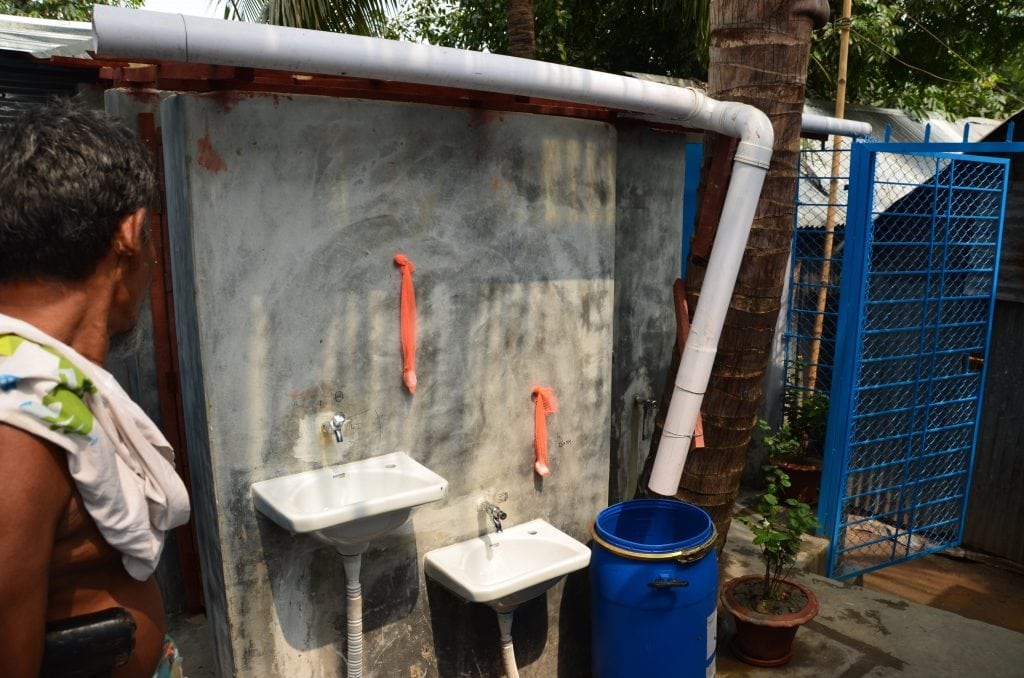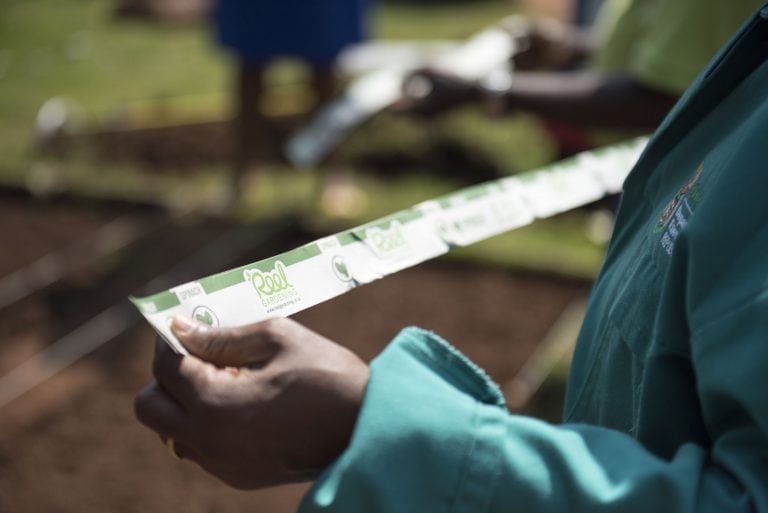Slum dwellers in Dhaka, Bangladesh, worked with the French non-governmental organization Eau et Vie to improve their latrines and provide sustainable access to hygienic facilities. The effort was part of a pilot project that Eau et Vie launched in 2016 to test technical, managerial and financial solutions.
The pilot is taking place in Bhashantek, a slum neighborhood in Dhaka. There, Eau et Vie has been providing water and solid waste management services through a local social enterprise called Shobar Jonno Pani (SJP – “Water for all”). SJP is a Bangladeshi social business the Eau et Vie created in 2010 to provide a water supply and solid waste management services in Bhashantek.
To provide services in Bhashantek, Eau et Vie partnered with the UN Development Programme, the Dhaka City Corporation, and the Dhaka Water Supply and Sewerage Authority. The community was signed in the framework of a program of poverty reduction. SJP was mandated to provide Bhashantek families with drinking water.
I took these photos to document the project and highlight some of its innovations in technology and service provision as well as its potential for impact on the community.
Before
Before rehabilitation, 70 people used this block of three latrines in a slum in Dhaka, Bangladesh. The latrines were unhygienic. They were connected to a drain that let out into a pond, increasing the risk of disease transmission. The area was particularly dirty, with wastewater and garbage spread everywhere. Foul smells were constant.
After
After rehabilitation, the sanitary block includes:
- Nine latrines: There are now one-third the number of users per toilet at 10 to 12.
- Two urinals: Male and female, with a bigger female urinal to improve hygiene conditions during menstruation.
- Two showers: Male and female showers improve privacy for users who used to have bathe in open places.
Biofil Latrines
The technological solution selected is a Biofil Toilet, which is based on vermi-compost. The liquid part is filtered and released to a drainage pipe connected to the municipal network, while the solid part is degraded by worms in a tank located below the toilet pan.
This technology allows for a dramatic reduction in the volume of human waste stored, thus decreasing the frequency of desludging. This is crucial in a city where sludge collection and treatment facilities are lacking.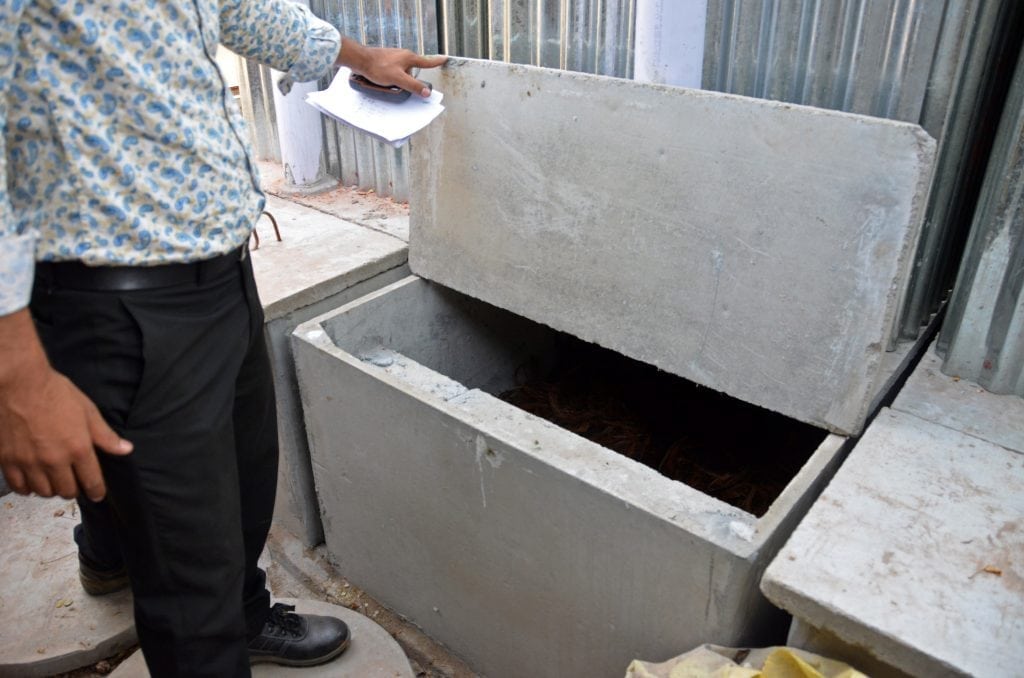
Toilet access
To ensure its sustainability, the rehabilitated block of latrines is operated by Shobar Jonno Pani (SJP – “Water for all”), a Bangladeshi social business created in 2010 by Eau et Vie to provide water supply and solid waste management services in this slum.
Access to each latrine is restricted. Only two to three families are using each toilet, and the toilets are enclosed within lockers.
The users are in charge of cleaning their own toilets. They have been trained to use them properly according to the specifications of the type of latrines selected (biofil latrines).
Handwashing and rainwater for clean-up
Hand washing sinks for both adults and children have been installed. The water is supplied through the network operated by the social enterprise SJP.
Rainwater is collected from the roof and used for daily cleaning of the common areas (urinals, bathing places, open areas, etc.).
Removable sitting pan for users with disabilities
A prototype of a removable sitting pan has been developed in close cooperation with the community to improve access to disabled people. 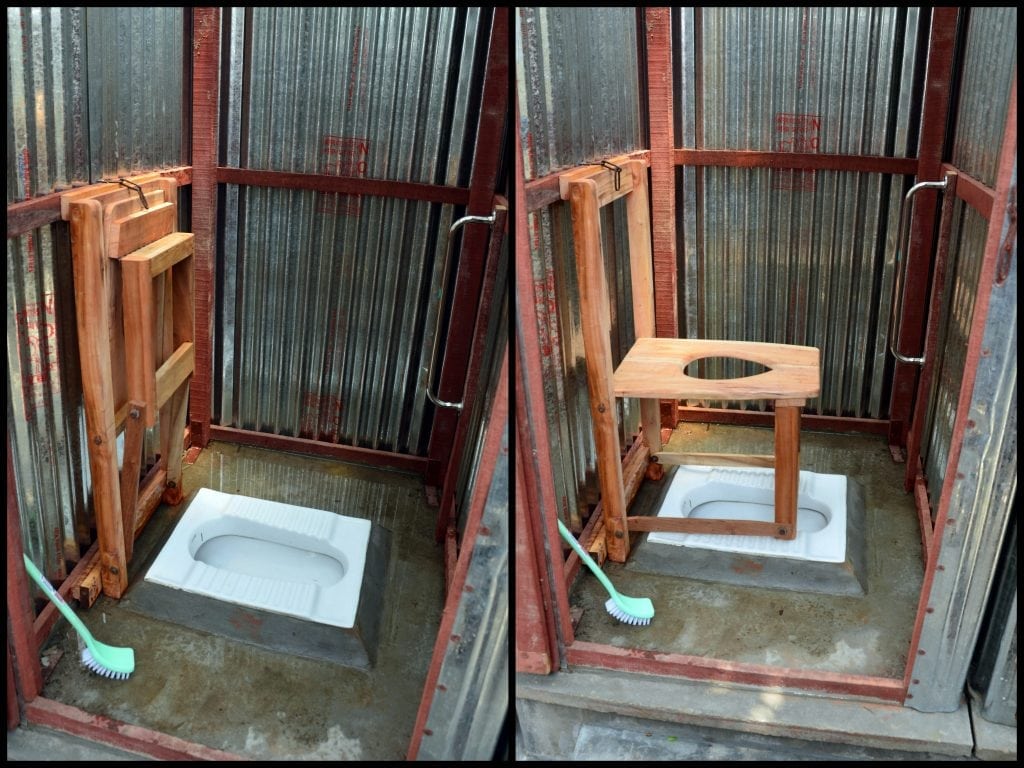
Solar lighting
The renovated sanitary block is equipped with a solar light to improve the safety conditions at night, especially for women. 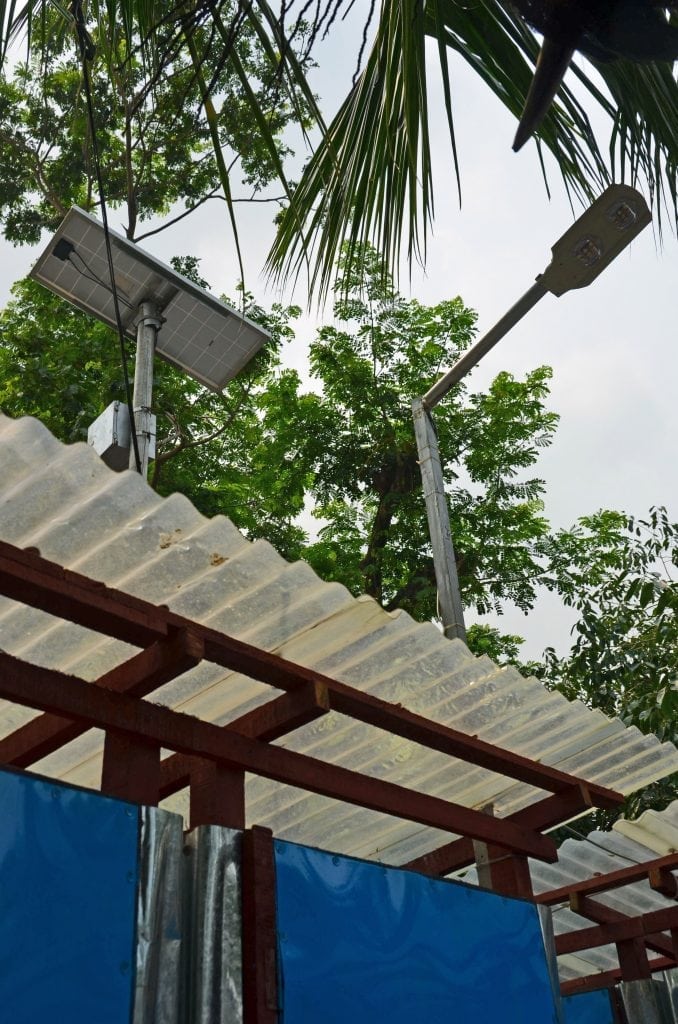
Security
The sanitary block is a closed space, locked at night to ensure ownership of the users (only they have the gate key) and limit any damage or theft.
Garbage inside the block is collected every week by the waste collectors of the social enterprise SJP.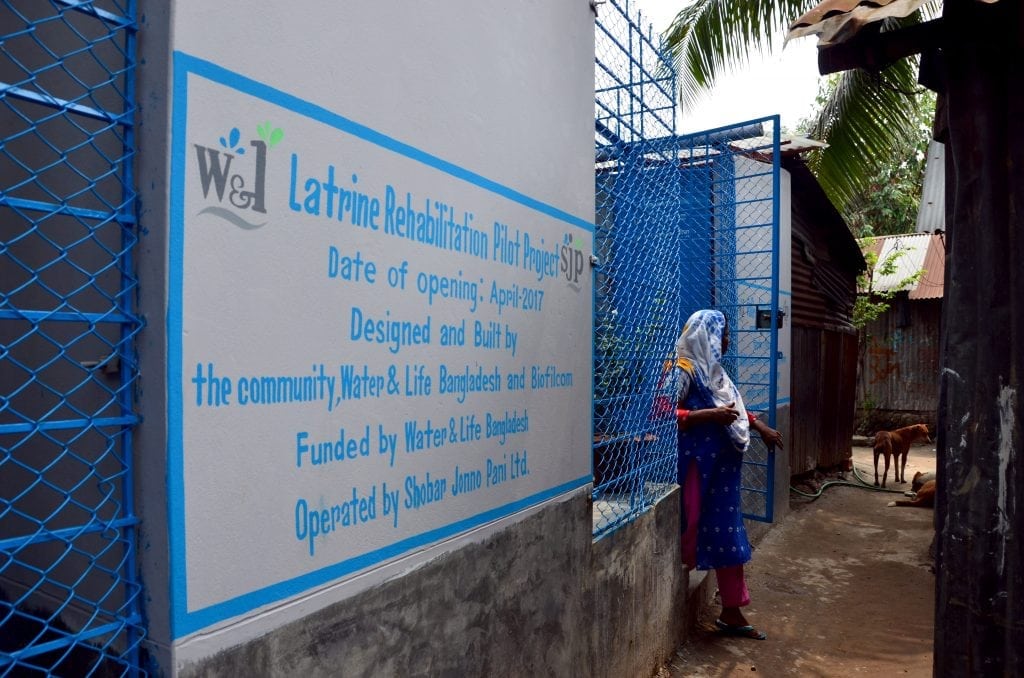
A process that includes the community
The rehabilitated sanitary block has been designed in close collaboration with the community. The users of the latrines were involved with the cleaning of the area and the construction of the new block. They contribute to investment costs through an access fee paid at the signing of the contract with the social enterprise SJP.
The community has also been provided with awareness-raising sessions on hand washing and the use of the hygienic latrines.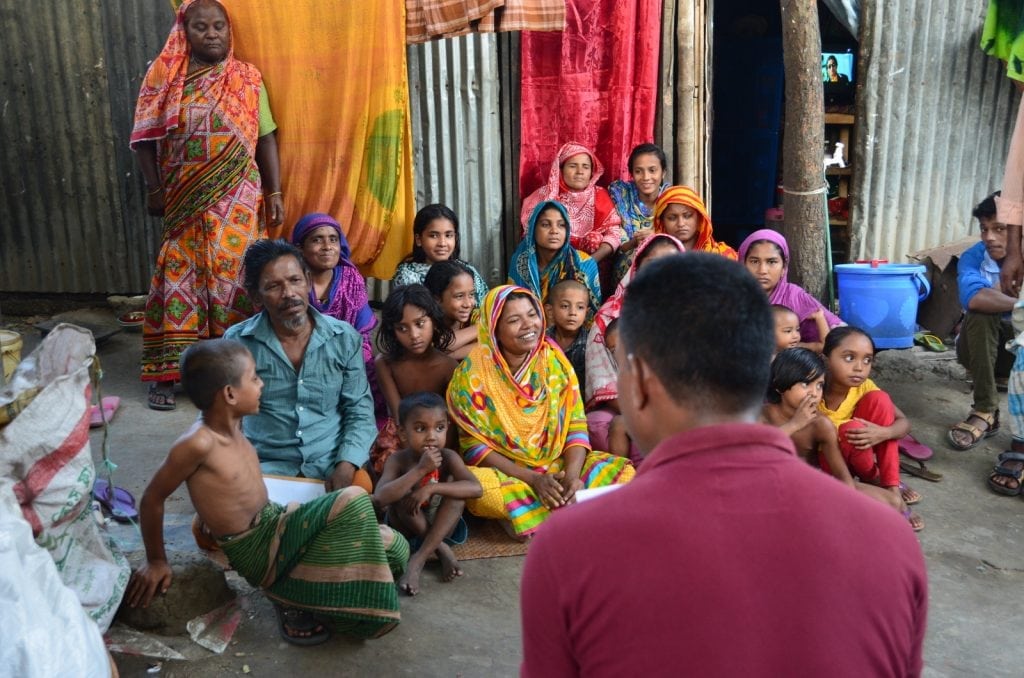
Billing and job creation
When signing a contract with the social enterprise SJP, the users are asked to pay an access fee to contribute to the investment costs and a service fee to cover operation and maintenance costs. The fees are collected weekly by SJP employees who are recruited from the slum. A common bill for the 3 services (latrines, water, and solid waste management) is critical to ensure a sustainable management of the facilities, as the payment of the whole bill is the condition for access to drinking water.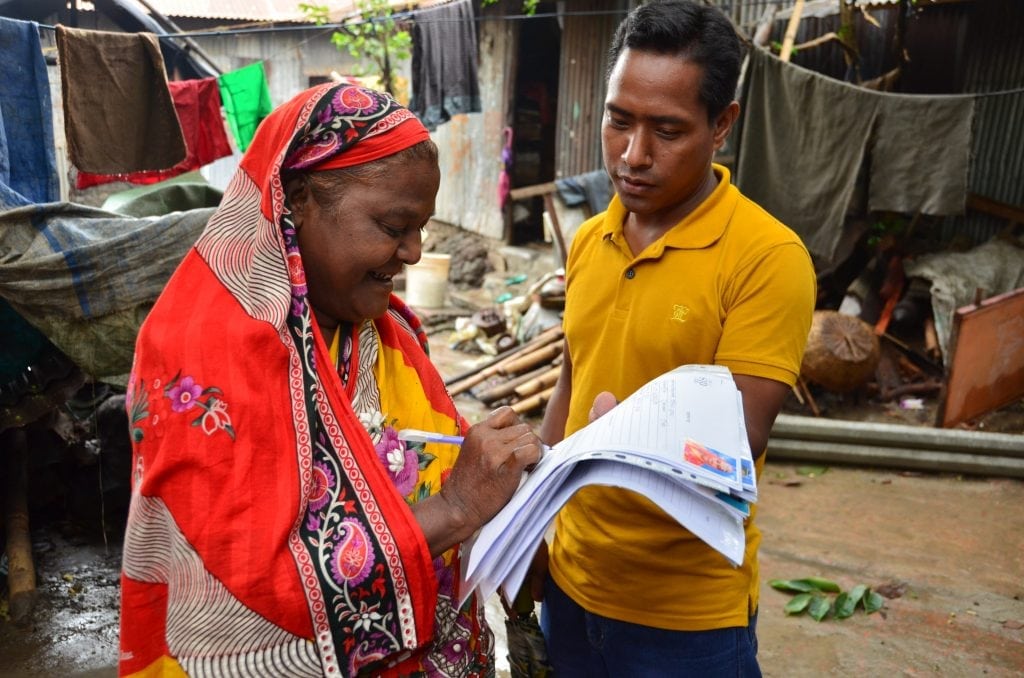
Claire Benveniste is a Contributing Editor at E4C and a Water and Sanitation Engineer who specializes in development issues both in urban and rural contexts. She has developed her skills in very diverse organizations, from NGOs, to bilateral donors, to consulting firms of various sizes mostly in France, Cambodia and Bangladesh.
